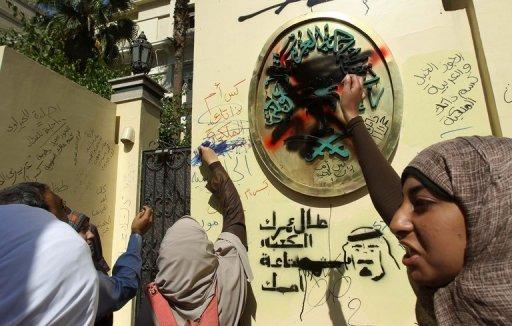CAIRO: Lining up in front of a polling station in Cairo, a group of south Sudanese have one goal: to head back home once expected independence is declared, even if it means being forced into menial work.
Scenes of jubilation erupted outside polling stations in Egypt last week at the start of a week-long referendum that could see Africa’s largest country split in two. Enthusiastic voters have been flocking in to vote ever since.
Edward Gildo, a former player in Sudan’s national football team, said he is longing to go back home, to what could be the world’s newest country.
"Even if it’s to do housework there, I’ll be happy in south Sudan because it’s home," he told AFP.
"As soon as I go back, I’ll set up a south Sudan football team," he said.
Mary Isaac, a representative for the south Sudan referendum commission, said most southerners living in Egypt will go back after the vote.
"I don’t think they’ll find the same jobs they have here in Egypt but there will be work, they will start building a new country," she said.
Around 7,000 southern Sudanese live in Egypt and 3,349 are registered to vote, Isaac said.
But large numbers of informal residents make official total figures difficult to come by.
According to Pasquale Lupoli, of the International Organization for Migration in Cairo, there are between 20,000 and 25,000 southern Sudanese currently in Egypt.
In the waiting room of a polling station, Arek Lual, 23, is eager to cast her ballot.
She is categorical: "I have no work here. I am for the independence and once it is declared, I’m going home. I’m not scared, I’ll go back and see what happens."
But others are more cautious.
"I want to go back but I’m worried, I want to see how things develop first and then I’ll go home," said Abuk Deng Mywen, 36, a housekeeper who came to Egypt eight years ago for work.
"I don’t know if there will be work for everyone but I could always work in the fields," she said, after casting her ballot in favor of independence.
The prospects of the independence of the impoverished south have been strengthened by announcements Thursday that the voter turnout threshold of 60 percent needed to render the referendum valid had been met. There are still two days of voting left.
Around four million voters have registered for the poll. The results, due to be announced in mid-February, are largely expected to the mainly Christian south split from the majority-Muslim north.
The landmark vote was guaranteed by a peace deal signed in 2005 which put an end to a bitter decades-long civil war between north and South Sudan during which about two million people died in a conflict fuelled by religion, ethnicity, ideology and resources, including oil.
The 2005 accord sets a July date for international recognition of the south should if voters choose secession.

